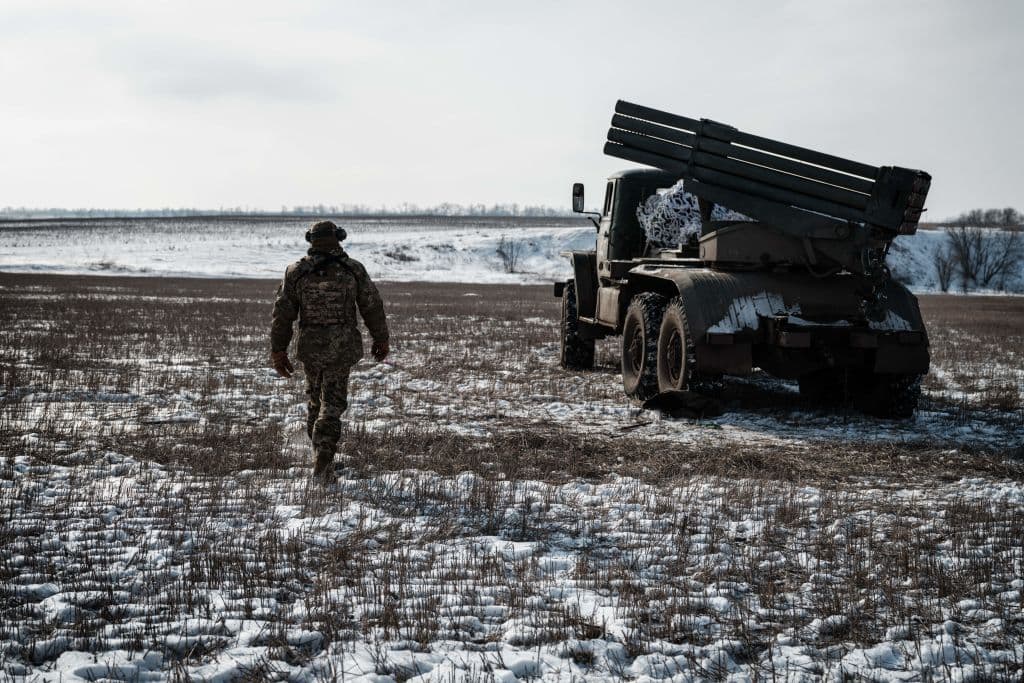CIUS: Weapons procurement for Ukraine highlights problems in Canadian defense capabilities

Editor's note: The Kyiv Independent is exclusively re-publishing reports prepared by the Canadian Institute of Ukrainian Studies (CIUS) of the University of Alberta (Edmonton, Canada). CIUS launched its Media Monitoring Service (MMS) in the spring of 2022 to identify and critically assess dominant narratives, with a special focus on disinformation, in selected key Canadian and U.S. publications regarding contemporary Ukraine. The purpose of MMS is to inform experts and the general public how Ukraine and Ukraine-related events are reported on and bring attention to contentious ideas and claims that may be perpetuated in the media to Ukraine’s detriment.
Find the latest report on Canadian media coverage below:
Five media outlets — The Globe and Mail, Winnipeg Free Press, Toronto Star, Le Journal de Montréal, and Le Journal de Québec — were surveyed to prepare this report on how the situation in Ukraine and Canada’s role in the war have been portrayed in Canadian media during the first two weeks of 2023. The publications were selected based on their impact on public opinion as well as their professional reputation, popularity among readers, and topical relevance.
This analysis reviews only original reporting about Ukraine produced by the selected publications in the past fourteen days. It covers texts from special sections on Ukraine, paper editions of the magazines, and opinion columns and editorials.
Key messages:
- The West needs to keep supporting Ukraine with military aid;
- Defense procurement for Ukraine, Europe’s energy crisis highlight Canada’s problems at home;
- Canada can set an international example by stepping up in the prosecution of Vladimir Putin and Russia’s war crimes in Ukraine.
Main topics:
Kremlin keeps using Wagner mercenaries in Ukraine and elsewhere. Menaka Raman-Wilms (Globe and Mail) spoke to Sean McFate, a senior fellow at the Atlantic Council and author of The Modern Mercenary: Private Armies and What They Mean for World Order about the Wagner mercenary group, which has been accused of war crimes in Ukraine. McFate explains the Kremlin’s reliance on the mercenary organization that works for Russia but is not considered a legal entity. He adds that both Russian President Vladimir Putin and his close confidant Yevgeny Prigozhin (who is linked to Wagner) deny any connection to the group. “Putin’s legacy is to recreate the Russian empire,” McFate explains to the author. “He’s taken great steps in recent years, most notably in Ukraine, to try to resurrect the superpower that was the USSR, not under some sort of communist ideology but under, like, Czar Putin. He likes mercenaries because they give you plausible deniability. So if things go badly someplace or you want to commit human rights abuse as a policy, if they get caught, you can always back away and say, well, we don’t know who those Russians are. And as absurd as that sounds, it kind of works.”
Europe proves that life without Russian oil and gas is possible. Eric Reguli (Globe and Mail) argues in his opinion piece that “other than outright victory in Ukraine, there is nothing the Russian President wanted more than to see his weaponization of energy make Europe freeze in the dark.” Against the odds that crippling oil and natural gas prices would inflict deep economic pain, Europe has shown that it can withstand Russia’s energy blackmail.
Despite natural gas prices still being rather high, they have plummeted since their August peak; and in the past month alone they fell by half, according to Reguli. Thus, “Putin’s energy war against Europe, like his war against Ukraine, is not going to plan.” Reguli also points out that German chancellors Gerhard Schroeder and Angela Merkel “were wrong” when insisting that “the mighty German economy could not thrive without the seemingly endless supplies of (Russian) cheap energy.”
“Now that Europe has proven it can live without Mr. Putin’s oil and gas, it seems unlikely that Russian energy will ever again play a big role in the European energy mix—a huge revenue loss for the Kremlin and its effort to weaken the resolve of NATO countries, most of them European, to send weapons to Ukraine,” Reguli writes.
Continue to the full report here.











